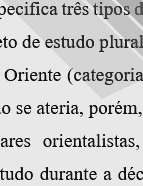

................................
The first traces of Marxism in Portugal date back to the second half of the 19th century. Alfredo Margarido identified the first reference to Karl Marx by a law student in 1852, named Oliveira Pinto (Margarido, A Introdução do Marxismo em Portugal [The Introduction of Marxism in Portugal], 1975, p.41). However, between the late 19th century and the first quarter of the 20th century, while in other countries the workers' movement had found a powerful source of inspiration in Marxist ideas, in Portugal republican and/or anarchist ideas predominated among the main social movements. It was only from the mid-1930s, after the 1929 world crisis and the establishment of the Estado Novo [New State], and at the time of the Popular Front in France and the Spanish Civil War, that Marxism began to assume greater relevance in Portugal, positioning itself ambivalently towards the legacies of republicanism and anarchism: while those who had formerly lent their voice to republican and/or anarchist causes were among the initial cultivators of Marxism, its rise occurred precisely by severing all links with these republican and anarchist political cultures, which were frequently explicitly repudiated by the Marxists.
Both the political dynamics of the Partido Comunista Português [Portuguese Communist Party] (PCP) - after a reorganisation of the party which had begun in the early 1940s - and the cultural activity of the neo-realist movement - already visible in the late 1930s - were responsible for the establishment of a specific place for Marxism in Portuguese history (Madeira, Os Engenheiros de Almas [The Engineers of Souls], 1996; Nunes, “Comunismo, antifascism e intelectuais” [“Communism, anti-fascism and intellectuals”, 1996; Pereira, Álvaro Cunhal, 1999).
The two-fold origin of Marxism in Portugal - affiliated to the party-political sphere on the one hand, and the cultural field on the other - marked its path from the 1940s onwards. Its affirmation was as much due to the practices of a set of leaders, writers and artists, whose names are often highlighted when recalling the resistance to the dictatorship of the Estado Novo, as to the practices of anonymous militants with or without intellectually driven educational and labour trajectories. Beyond a doctrine and general theory or a specific party-political programme, in Portugal, from the late 1930s, Marxism represented an ideological culture within which several thousand people dedicated themselves to the analysis, representation or transformation of the existing situation.
